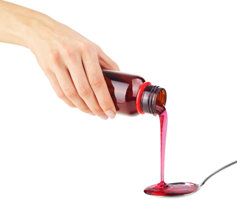OTC Drug Abuse A Growing Problem

Parents know the growing drug epidemic in the United States and worry about their children at school, among friends, and at parties. Most parents are shocked to find that drug abuse can occur right under their own roof and that they may be unsuspecting providers. American teens are turning more and more to the medicine cabinets to get high.
Unfortunately even more recent news indicates that boys are more prone to OTC drug abuse than girls.
Why Boys Are More Prone Than Girls
A new study by the University of Cincinnati examined drug abuse among middle and high school students in 133 schools across greater Cincinnati. Researchers perused surveys from 2009 to 2010 and discovered that ten percent of teens admitted over-the-counter abuse. Not only that, boys had a higher rate of long-range use.
OTC drugs were acquired at parties, from friends at school, and even purchased during a lunch break. Typically the habit continued through parents’ supply, using the Internet for information on how to use it and how to hide it.
What Are OTC Drugs?
Over-the-counter drugs that are abused include cough suppressants and cold medication such as Nyquil, Dimetapp, Robitussin, and Vicks. These medicines used to contain codeine, a narcotic that provides a cheap and easy high, and it started the teen trend of OTC abuse. In the 1970’s, the FDA banned the use of codeine in cough syrup and it was replaced with dextromethorphan (DXM), a chemical substance with similar properties. Kids quickly found that chugging large amounts of DXM will still do the trick, so it remains popular among American teens.

DXM produces euphoria and hallucinations. It is a dissociative anesthetic, meaning it causes unconsciousness with feelings of being separated from the body. The user may appear to be fully conscious but is in fact not aware of his present time environment. Oftentimes the user has no recollection afterward of his behavior while on the drug.
Other effects of DXM include confusion, dizziness, slurred speech, blurred or double vision, abdominal pain, nausea, vomiting, increased heartbeat, drowsiness, numbness, impaired physical capacity, and disorientation. Users describe different “plateaus” or levels of high which range from mild distortion of perceptions to full visual hallucinations and loss of motor control.
Long-term use of DXM can cause short-term memory loss and attention problems, especially when abused during the brain’s development, which continues into the early twenties. Some cough medications include other drugs like acetaminophen, which can be extremely dangerous when consumed in large quantities. Those abusing DXM often take it with other drugs or alcohol, which also increases its dangerous effects and can lead to overdose and death.
DXM is one of a number of OTC medications of abuse with products like hand sanitizer, over the counter pills and even household items closely following.
What Can Be Done
Many parents have taken to locking their OTC and prescription medication away so that teens are not tempted. However, the problem remains widespread due to school and online influence. The best solution is for parents to talk to their children and provide all the information they can about drug abuse. Prevention is far easier than rehabilitation.
Speak with your kids early enough to get a good result. Let them ask questions and teach them ways to say no that they are comfortable with.
Source:
 ®
®